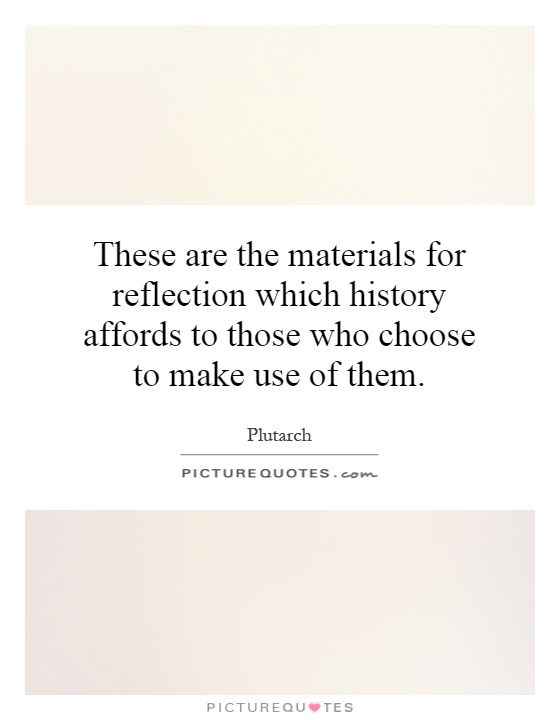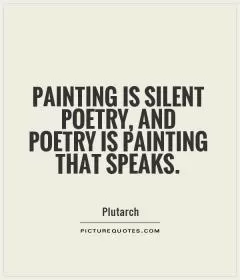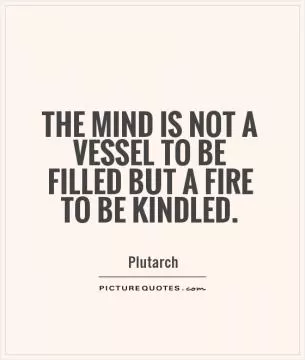These are the materials for reflection which history affords to those who choose to make use of them

These are the materials for reflection which history affords to those who choose to make use of them
Plutarch, the ancient Greek historian and biographer, believed that history provided valuable materials for reflection for those who were willing to study and learn from it. In his famous work, "Parallel Lives," Plutarch compared the lives of famous Greeks and Romans, drawing lessons and insights from their experiences. He believed that by studying the lives of great men, one could gain wisdom and guidance for their own lives.Plutarch's belief in the importance of studying history for reflection is evident in his writings. He believed that history was not just a record of past events, but a source of moral and ethical lessons that could be applied to the present. By examining the successes and failures of historical figures, one could learn valuable lessons about leadership, courage, and virtue.
Plutarch's approach to history was not just about recounting facts and dates, but about understanding the motivations and character of the individuals involved. He believed that by studying the lives of great men, one could gain insight into human nature and the complexities of the human experience. Plutarch's biographies were not just about celebrating the achievements of his subjects, but about exploring the moral and ethical dilemmas they faced and the choices they made.
Plutarch's belief in the value of history for reflection is still relevant today. In a world that is constantly changing and evolving, the study of history provides a valuable perspective on the present. By examining the successes and failures of past societies and individuals, we can gain insight into the challenges we face today and learn from the mistakes of the past.












 Friendship Quotes
Friendship Quotes Love Quotes
Love Quotes Life Quotes
Life Quotes Funny Quotes
Funny Quotes Motivational Quotes
Motivational Quotes Inspirational Quotes
Inspirational Quotes